6 Foods That Will Help You Deal With Hydrocele
By Dr. Nilesh Kumar Dehariya +2 more

Get,

to manage your symptom
Get your,


4 Cr+ families
benefitted

OTP sent to 9988776655



You’ve successfully subscribed to receive
doctor-approved tips on
Whatsapp

Get ready to feel your best.

Hi There,
Download the PharmEasy App now!!


Register to Avail the Offer
Send OTPBy continuing, you agree with our Privacy Policy and Terms and Conditions

Hi There,
Sign up on PharmEasy now!!
Trusted by 4 crore+ families

OTP sent to 9988776655



You have unlocked 25% off on medicines




Code: NU25
By Dr. Nilesh Kumar Dehariya +2 more
Table of Contents
The hydrocele is an enlargement of the scrotum, the thin sac that contains the testicles. This occurs when too much fluid builds up in the sac. Usually, it occurs in newborns. However, it can also affect adults1.
It is usually not very threatening and might go on its own. However, you should still seek medical attention for it if it does not go away on its own.

Despite being more common in newborns, hydrocele can develop at any age. The development of these may be influenced by underlying injuries or even inflammation. A hydrocele is nothing more than a temporary and inconvenient condition for most people1.
Did you know?
An isolated testicular swelling is usually the only indication of a hydrocele. If you have hydrocele, you might notice symptoms such as redness, itching, soreness, etc. Hydroceles may cause discomfort in adult men due to the heaviness of a swollen scrotum. Generally, the pain increases with inflammation size. Most people with hydrocele do not feel any pain; they just complain of swelling in the scrotum. However, pain may appear along with these other symptoms in some situations. In some cases, the swelling might be smaller in the morning and larger in the afternoon1.
Over the years4, I have observed that based on traditional practices, applying a paste made from fresh corms of Grewia hirsuta (Kukurbijda) on the testicles at night may be used for hydrocele. It is believed that the application of this paste may provide some relief by potentially reducing inflammation or promoting healing in the affected area.
Dr. Siddharth Gupta, B.A.M.S, M.D (Ayu)
Hydrocele can be treated in many ways. However, you should also remember that your diet plays an important role in improving your symptoms. Our diet has a direct impact on our health. People with hydrocele should understand what foods can help improve the condition, as well as which foods can aggravate it. Here are lists of food items that you should and should not eat in this condition:
I have often come across people who get a hydrocele or have dealt with its care. They tend to use the tubers of Gloriosa superba L. (Colchicaceae) by cooking them with mustard oil for two hours. After cooling, the obtained lotion is applied externally on the hydrocele for two to three days. While the exact mechanism is not fully understood, it is believed that the application of this lotion may help reduce swelling and inflammation associated with hydrocele4.
Dr. Smita Barode, B.A.M.S, M.S.
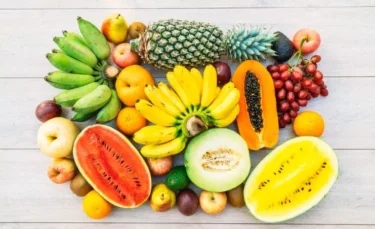
Include fruits like apples, oranges, peaches, pineapple and grapes in your regular diet. Consume fresh, raw fruits and avoid tinned or canned fruits as much as possible. You can also include fresh homemade fruit salads and smoothies without any added sugar.
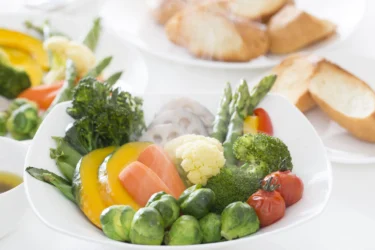
Include boiled or steamed vegetables in your regular diet. You can have a bowl of boiled vegetables served with your lunch and dinner. A healthy alternative would be to have a fresh vegetable salad every day.

Keeping yourself hydrated is very important. Keep a jug or a bottle of water with you always and make sure to drink water every 15-30 mins. Consuming water and other healthy fluids that will keep you hydrated and healthy is vital, more so for people dealing with hydrocele2.
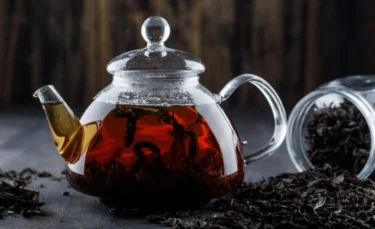
Both black tea and ginger tea are known to have multiple benefits. Similarly, black tea and ginger tea can be beneficial for people dealing with hydrocele. Every day, a small cup of ginger tea may alleviate some pain and inflammation.
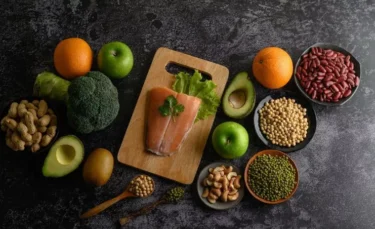
Fibrous food is very important for a good digestive system. Fibre-rich foods such as wheat, barley, rye, oats, methi, machine, jowar, bajra etc., can be beneficial for people dealing with hydrocele as it helps improve digestion3.
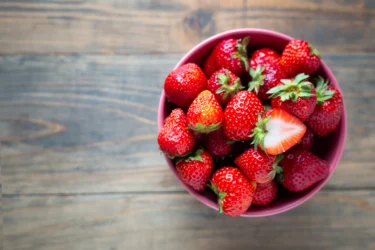
Adding antioxidants to your diet can be very healthy, especially beneficial for people suffering from hydrocele. Strawberries and other red and orange-coloured fruits and berries have high antioxidant content and can help detoxify your body.
Based on my experience, a hydrocele (Eksira) is commonly managed using rhizomes that are dried, powdered, and mixed with honey in a ratio of 1:2. This mixture is taken orally for a duration of two weeks. It is believed that the combination of dried rhizome powder and honey may have potential benefits in reducing the swelling and discomfort associated with hydrocele4.
Dr. Rajeev Singh, BAMS
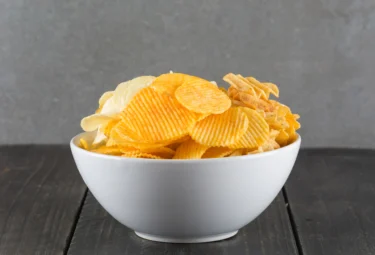
Excess salt and sugar are found in processed foods. These foods can cause many health problems if consumed in large quantities. Furthermore, they lack fibre and vitamins, which are essential for health. The artificial ingredients in processed foods can also cause serious health problems. People suffering from hydrocele should avoid processed foods.

It is recommended to avoid preserved foods in case you have hydrocele. This is due to the fact that they contain a number of chemicals and artificial preservatives that are unhealthy. Complications and serious health issues can arise as a result of these preservatives. Among the most commonly used artificial preservatives are BHA and BHT, both of which are carcinogenic.

It is recommended that junk foods such as pizza, burgers, fries, etc., be avoided because of their low mineral, vitamin and fibre content. There are a number of problems caused by these and the condition of hydroceles may even worsen. In addition, junk foods are often heavy and contain a large amount of fat, which interferes with bowel movements. This results in constipation, which adds to the strain experienced during bowel movements, which can aggravate the hydrocele.
Also Read: Human Papillomavirus (HPV): What Is It, Causes, Symptoms, and Prevention

Spice intake should be reduced if you suffer from hydroceles. You should also avoid heavy and greasy foods. Heavy and greasy foods can be harmful to your health. A lot of discomforts can also be caused by such foods.

Drinks containing caffeine and pickles should be avoided by people with hydroceles. You may experience digestive problems if you consume excessive amounts of salt and oil in pickles. The consumption of large quantities of caffeine also has harmful effects on the digestive system, among other things.
Also Read: Home Remedies That Ease Your Hydrocele
The above-mentioned tips will be very helpful for people dealing with hydrocele to ease their pain and discomfort. Before following these tips, it is very important to first consult your doctor for proper treatment of hydrocele. Hydrocelectomy (a surgical procedure to remove or treat hydrocele) is an effective solution that may be advised by your doctor. Currently, laser-based surgery is used, which is minimally invasive and painless.
Also Read: Varicocele – Symptoms, Causes, Home Remedies
Among the foods that can be beneficial for anyone dealing with hydroceles are fibrous food, fruits and vegetables and plenty of water or any healthy fluid to keep yourself hydrated.
Yoga is highly recommended for hydrocele. Yoga asanas such as Vajrasana, Gomukhasana and Garudasana can be very beneficial.
Hydrocele in infants may heal naturally without any treatment, but in any case, one must consult a doctor for this condition. It is also important to address the cause of swelling and prevent any other complications by prompt treatment.
Hydroceles are more likely to develop in premature babies. An injury or inflammation of the scrotum may cause a hydrocele to appear later in life. Sexually transmitted infections may also cause hydrocele.
1. zaifa M, Moreno MA. Hydrocele. [Updated 2023 Jul 3]. In: StatPearls [Internet]. Treasure Island (FL): StatPearls Publishing; 2025 Jan-. Available from: https://www.ncbi.nlm.nih.gov/books/NBK559125/
2. Leslie SW, Rout P, Pandey J. Filarial Hydrocele. [Updated 2025 Aug 3]. In: StatPearls [Internet]. Treasure Island (FL): StatPearls Publishing; 2025 Jan-. Available from: https://www.ncbi.nlm.nih.gov/books/NBK560776/
3. Akbar A, Shreenath AP. High Fiber Diet. [Updated 2023 May 1]. In: StatPearls [Internet]. Treasure Island (FL): StatPearls Publishing; 2025 Jan-. Available from: https://www.ncbi.nlm.nih.gov/books/NBK559033/
4. Singh H. Traditional phytotherapy for the treatment of hydrocele in Odisha, India. Anc Sci Life. 2012 Jan;31(3):137-40. doi: 10.4103/0257-7941.103198. PMID: 23284221; PMCID: PMC3530339. https://pmc.ncbi.nlm.nih.gov/articles/PMC3530339/
Disclaimer: The information provided here is for educational/awareness purposes only and is not intended to be a substitute for medical treatment by a healthcare professional and should not be relied upon to diagnose or treat any medical condition. The reader should consult a registered medical practitioner to determine the appropriateness of the information and before consuming any medication. PharmEasy does not provide any guarantee or warranty (express or implied) regarding the accuracy, adequacy, completeness, legality, reliability or usefulness of the information; and disclaims any liability arising thereof.
Links and product recommendations in the information provided here are advertisements of third-party products available on the website. PharmEasy does not make any representation on the accuracy or suitability of such products/services. Advertisements do not influence the editorial decisions or content. The information in this blog is subject to change without notice. The authors and administrators reserve the right to modify, add, or remove content without notification. It is your responsibility to review this disclaimer regularly for any changes.
Comments

Leave your comment...
You may also like
Comments